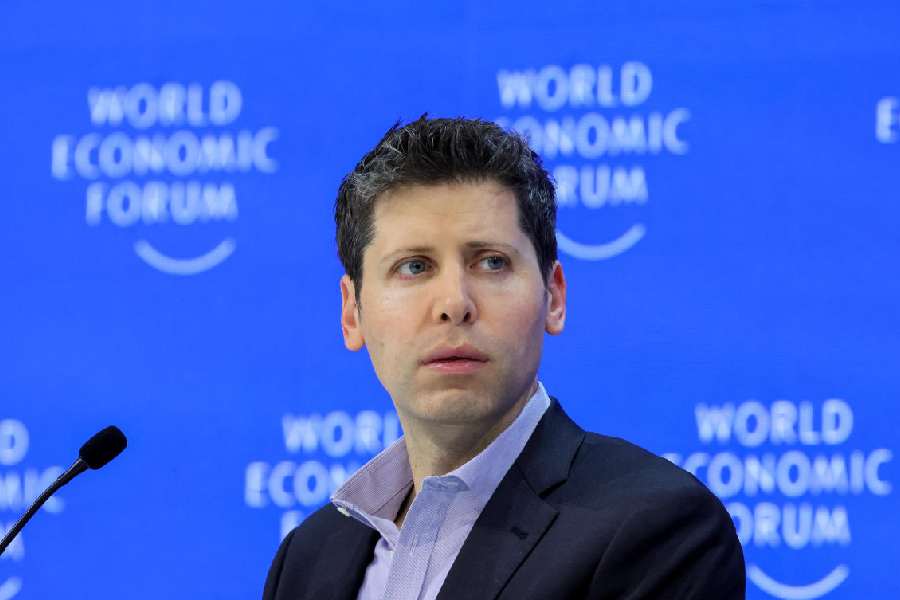The conclusion of an investigation into the chaotic firing of Sam Altman from OpenAI more than three months ago represented a resounding victory for the high-profile CEO as he moves to reassert control of the artificial intelligence company he helped to create.
OpenAI, in a news conference Friday, said that Altman, who returned to OpenAI just five days after he was pushed out in November, did not do anything that justified his removal and would regain the one role at the company that still eluded him: a seat on the company’s board of directors.
Altman’s ouster stunned Silicon Valley and imperiled the future of one of the tech industry’s most influential startups. It also called into question whether OpenAI — with or without Altman in charge — was ready to carry the banner for the tech industry’s rabid focus on AI.
When he returned to OpenAI in November, Altman did not regain his board seat while agreeing to an investigation of his behavior and the board’s actions. Two members who voted for his removal agreed to step down; their replacements, from outside the company, oversaw the investigation by the law firm, WilmerHale. Bret Taylor, chair of OpenAI’s board, said during the news conference that the highly anticipated report about the episode was finished, but the company did not release it.
The company said that the law firm’s report found that OpenAI’s board acted within its broad discretion to terminate Altman but also found that his conduct did not mandate removal.
“The special committee recommended and the full board expressed their full confidence in Mr. Altman and Mr. Brockman,” Taylor said, referring to Greg Brockman, the company president who quit in protest after Altman was removed. “We are excited and unanimous in our support for Sam and Greg.”
OpenAI also moved to address concerns about a lack of diversity on the board by adding three women as directors: Sue Desmond-Hellmann, the former CEO of the Bill & Melinda Gates Foundation; Nicole Seligman, the former general counsel of Sony; and Fidji Simo, CEO of Instacart.
Taylor, who was one of the replacements named to OpenAI’s board in November, said the board would continue to expand.
With the report and the additions to the board, OpenAI’s leadership hoped to move past the controversy of Altman’s ouster. The incident raised myriad questions about his leadership and the San Francisco company’s unusual structure — a nonprofit board that oversees a for-profit company.
But because it has not released the report, OpenAI has left many questions unanswered about the company. Some insiders have asked whether Altman had too much control over how the investigation was handled.
“As we told the investigators, deception, manipulation, and resistance to thorough oversight should be unacceptable,” Helen Toner and Tasha McCauley, the two OpenAI board members who left late last year, said in a statement. “We hope the new board does its job in governing OpenAI and holding it accountable to the mission.”
Taylor appeared alongside Altman at the news conference Friday. After announcing the new board members, he said the review found that the previous board acted in good faith in removing Altman but did not anticipate the challenges that would arise from his dismissal.
“The review determined the board’s decision did not arise from concern regarding product safety or security,” Taylor said. “It was simply a breakdown in trust between the board and Mr. Altman.”
After Taylor completed his remarks, Altman praised the resilience of the company and its partners during and after his removal. “I am pleased this whole thing is over,” he said.
OpenAI provided a six-paragraph summary of the report. It said that WilmerHale reviewed 30,000 documents and conducted dozens of interviews, including with OpenAI’s previous board members.
It found that the previous board was accurate in its rationale and public explanation for firing Altman for not being “consistently candid in his communications with the board.” It also said that the board didn’t anticipate that its action would destabilize the company.
The company said that WilmerHale gave oral briefings on the report, which will not be publicly released, to Taylor and Larry Summers, the former Treasury secretary who was also added to the board in November.
Taylor said OpenAI had made several changes meant to improve the way the company was run, including new governance guidelines for the board, a new conflict of interest policy and a whistleblower hotline.
OpenAI’s summary of the report did not provide insight into the concerns that the company’s senior leaders brought to the previous board about Altman. Before his dismissal, Ilya Sutskever, OpenAI’s chief scientist, and Mira Murati, OpenAI’s chief technology officer, expressed worries about Altman’s management style, including what was characterized as his history of manipulative behavior, The New York Times has reported.
Sutskever, through a lawyer, has called those claims “false.” Murati said in a company Slack post Thursday that she shared the same feedback with the board that she had provided directly to Altman but said she never reached out to the board to share those concerns.
“I am happy that the independent review has concluded and we can all move forward united,” Murati said Friday in a post on X, formerly called Twitter.
OpenAI is still being investigated by the Securities and Exchange Commission over the board’s actions and the possibility that Altman misled investors. Companies that hire outside law firms often turn over the report to public investigators after completion. A spokesperson for OpenAI’s board declined to say whether it would provide the report to the SEC.
The New York Times New Service











